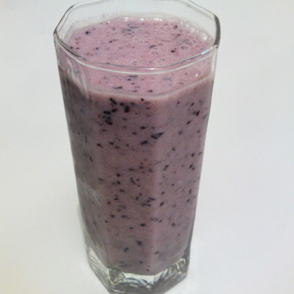Fish oil

Important fish oil facts
Fish oil is full the important omega-3 essential fatty acids EPA (eicosapentaenoic acid) and DHA (docosahexaenoic acid).
The human body needs essential fatty acids for normal growth, maintenance of cell membranes, to ensure the immune system is working well and to balance the body's hormone levels to a normal level.
The main functions of omega 3 fatty acids are to decrease LDL cholesterol levels, regulating inflammatory prostaglandin formation, decrease fibrinogen and thrombin levels and reduce platelet aggregation and blood viscosity.
- Long terms use of fish oil can deplete vitamin E stores and cause a deficiency of vitamin E, so these two supplements should be taken together
- The body is not capable of producing omega-3 fatty acids so they must be taken in the diet
- Oily fish such as salmon and mackerel are great sources of omega 3 fatty acids
Fish oil and health
- Heart health - several studies show that men who eat fish several times a week have less heart disease than men who don't eat fish regularly. Other studies show that fish oil supplements can help prevent sudden death from heart rhythm problems. Fish oil supplements may also prevent blood clots from blocking the arteries leading to the heart
- Fat levels - taking fish oil supplements can lower triglycerides level if they are too high, but conversely it may increase LDL (bad) cholesterol levels
- Crohn's disease - several studies have shown that fish oil supplements can be very helpful for keeping Crohn's disease under control
- Rheumatoid arthritis - several studies have shown that some patients found relief from taking omega-3 fatty acids to relieve pain and inflammation in this condition
- Depression - people with a deficiency of omega-3 fatty acids or who have an imbalance of omega-3 fatty acids to omega-6 fatty acids have been shown to be at a higher risk for depression. Studies have shown omega-3 fatty acid supplementation helps to improve brain activity and reduce symptoms of depression
People who wish to take an acidophilus supplement should talk to a medical professional BEFORE taking it.
Fish oil recommended intake
Dosage of fish oil depends on the condition that is being treated. A medical doctor and/or alternative health care provider can advise on individual cases - this information is provided as a guide only:
| Lifestage | Age | Amount (per day) |
|---|---|---|
| INFANTS | 0-12mths | Seek medical advice before taking it |
| CHILDREN | 1-8yrs | Seek medical advice before taking it |
| CHILDREN | 9-18yrs |
Seek medical advice before taking it |
| ADULTS | 19-50yrs |
1g fish oil 3 times a day (equiv to 0.3-0.5g of EPA & DHA) |
| SENIORS | 51+yrs | 1g fish oil 3 times a day (equiv to 0.3-0.5g of EPA & DHA) |
| PREGNANT | Seek medical advice before taking it | |
| LACTATING | NSeek medical advice before taking it |
Advertisement
Fish oil (omega-3) in foods
| FOOD | AMOUNT | Omega-3 (mg) |
|---|---|---|
| Salmon, canned Chinook | 1 Can | 3000 |
| Sardines | 1 Can | 2900 |
| Mackerel | 1 Fillet | <2200-2600 |
| Tuna, canned | 1 Can | 1500-1700 |
| Salmon, sockeye | 1 Fillet | 1300 |
| Bluefish | 1 Fillet | 1200 | >
| Trout | 1 Fillet | 1100-2000 |
| Herring | 1 Fillet | 1100-1700 | >
| Mullet | 1 Fillet | 1100 |
| Salmon, pink | 1 Fillet | 1000-1900 | >
| Bass | 1 Fillet | 600 |
| Catfish | 1 Fillet | 600 | >
| Crab, Alaska King | 1 Fillet | 600 |
| Shrimp | 1 Fillet | 300-400 | >
| >Flounder | 1 Fillet | 300 |
| Swordfish | 1 Fillet | 200 | >
Types of fish oil supplements
Fish oil supplementation is available in the following ways:
- Liquid - sometimes fish oil is available in the pure oil form, but is usually flavoured as it is not very pleasant tasting
- Soft gel capsules - liquid fish oil is added to the capsules
Fish oil supplementation checklist
- Check expiration date
- Look for a supplement that has both EPA and DHA in it
- Light, air, excessive storage times and processing destroy essential fatty acids - store in the refrigerator
Fish oil works best with
- Bioflavonoids
- Vitamin A
- Vitamin B3 (Niacin)
- Vitamin B6 (Pyridoxine)
- Vitamin E (Tocopherol)
- Methionine
- Magnesium
- Selenium
- Zinc
Overdosage, toxicity and cautions for fish oil
No toxicity has been reported in healthy individuals but people with health problems should be careful with taking any supplements.
Cautions
People with any of the medical conditions listed below should discuss supplementation with a medical profession BEFORE taking fish oil:
- People taking blood thinning medications - such as Coumadin or Warfarin should seek medical advice before taking a fish oil supplement, as there may be bleeding complications - talk to a medical professional
- People on anti-convulsant medication for epilepsy - are NOT recommended to take essential fatty acid supplements - talk to a medical professional
- People with Diabetes - should be cautious using fish oil supplements as they can raise blood sugar levels and lower insulin production - talk to a medical professional
Large amounts of fish oil supplements (over 5gm/day) can cause blood to become dangerously thin and make bleeding happen more often and more profusely when it does occur.
Advertisement
References
- Ingeborg A B, et al. Effect of Fish Oil on Ventricular Tachyarrhythmia and Death in Patients With Implantable Cardioverter Defibrillators: The Study on Omega-3 Fatty Acids and Ventricular Arrhythmia (SOFA) Randomized Trial. JAMA, June 14, 2006; 295: 2613 - 2619
- Mozaffarian D, Rimm EB. Fish Intake, Contaminants, and Human Health: Evaluating the Risks and the Benefits. JAMA, October 18, 2006; 296: 1885-1899
- Sanders TA, Hinds A. The influence of a fish oil high in docosahexaenoic acid on plasma lipoprotein and vitamin E concentrations and haemostatic function in healthy male volunteers. Br J Nutr. 1992;68(1):163-173
- Yosefy C, Viskoper JR, Laszt A, Priluk R, Guita E, Varon D, et al. The effect of fish oil on hypertension, plasma lipids and hemostasis in hypertensive, obese, dyslipidemic patients with and without diabetes mellitus. Prostaglandins Leukot Essential Fatty Acids. 1999;61(2):83-87
Last reviewed 21 April 2019

 Basics recipes
Basics recipes Breakfast recipes
Breakfast recipes Dessert recipes
Dessert recipes Dinner recipes
Dinner recipes Lunch recipes
Lunch recipes Snacks recipes
Snacks recipes



